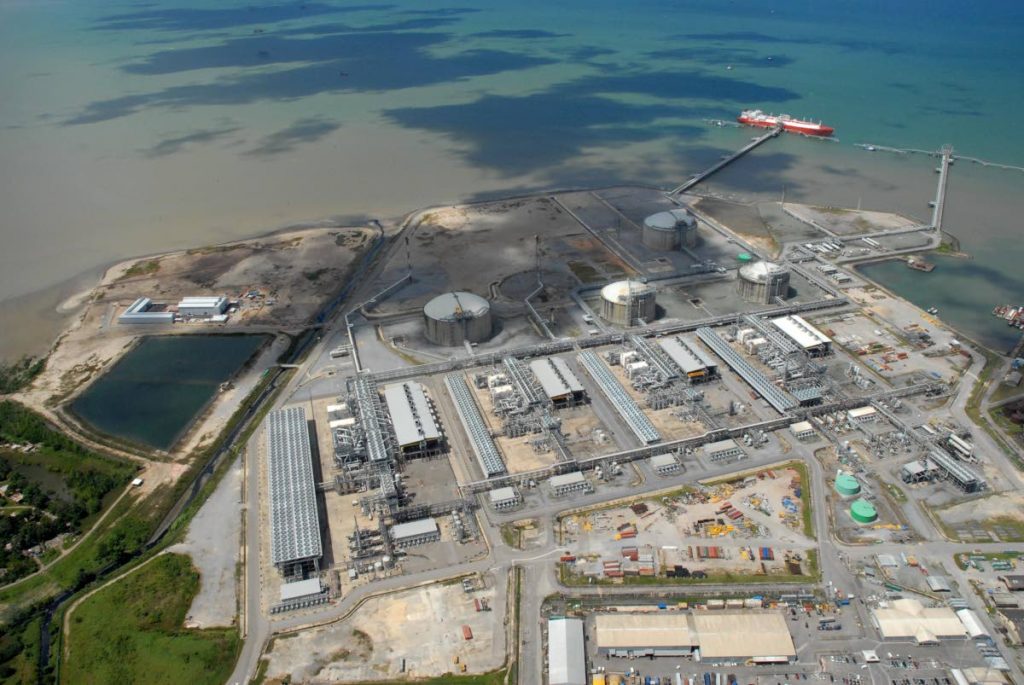
(Argus, 3.Jun.2019) — Trinidad and Tobago agreed with BP and Shell to discuss restructuring Atlantic LNG to try to forestall the shutdown of Train 1, which represents 20pc of capacity.
BP and Shell are the Caribbean country’s leading natural gas producers and top shareholders in the 14.8mn t/yr Atlantic liquefaction facility in southwestern Trinidad. The pioneering complex, which was first established in 1999, has been hamstrung by limited domestic feedstock in recent years. And a Shell-led plan to supplement domestic supply with pipeline gas imports from Venezuela starting this year fell apart amid turmoil in the neighboring country.
The decision to restructure Atlantic was reached last week in meetings in the Netherlands and the UK between the Caribbean state’s prime minster Keith Rowley and executives of the two companies.
Trinidad and BP have “scheduled the continuation of negotiations … which are expected to begin in the middle of June in furtherance of specific objectives relating to the restructuring of Atlantic, acceleration of field investigation, exploration, production as well as discussions surrounding a large number of exploration and production licenses,” the government and BP said.
Rowley formally signed agreements that were first reached with BP and Shell in December 2018 to increase the state’s income from Atlantic’s 3mn t/yr Train 1, and to extend the life of the train by five years to 2024. Train 1 began operating in 1999. “This agreement features an enhanced revenue package for the sale of LNG,” the government said. Shell has not commented on this agreement.
BP said on 11 May it may close Train 1 after 2019 because of a shortage of feedstock. The UK major said its infill drilling program targeted at the train would deliver about 300mn cf/d less output than forecast.
The other three trains of the Atlantic facility will not be affected by the gas deficit, BP said at the time.
The agreement with Shell includes the extension of production-sharing contracts for several blocks operated by the company, “and which could deliver a further 300mn cf/d to help meet the shortfall from BP’s infill drilling projects,” the energy ministry said.
“These agreements are intended to bring some stability to the country’s LNG production, given the uncertainty created by the looming shortfall in natural gas from the BP production units targeted to supply Train 1,” the ministry said. The restructuring “will aim at organizing a more flexible system of gas delivery to all four trains to cover any shortfall from any source, and to allow supply arrangement to overcome the differing shareholder structures of each train.”
The different ownership structure of each of the four trains has complicated feedstock allocation since Trinidad’s gas production started falling around 2010. In the case of Train 1, Shell owns 46pc and BP 34pc. Trinidad’s state-owned gas company NGC and China’s sovereign wealth fund CIC unit Summer Soca hold 10pc apiece.
BP said it remains committed to expanding its operations in Trinidad, upstream chief executive Bernard Looney said after meeting Rowley.
“We have been the largest investor in the country’s upstream sector – investing over $6bn in the last five years,” he said. “In the past two years we’ve started up three new major upstream projects in Trinidad and recently approved the development of another two.”
Trinidad’s gas production has been recovering since November 2017 following a long slide from a peak of 4.3 Bcf/d in 2010, and which suppressed output of LNG, ammonia and methanol.
Gas output in February 2019 averaged 3.956 Bcf/d, up by 8.6pc from January. Production in January-February averaged 3.798 Bcf/d, 0.7pc more than a year earlier.
The increased availability of gas led the Atlantic consortium to produce 4.96mn m³ of LNG in January-February 2019, up 2pc on a year earlier, according to the energy ministry.
____________________